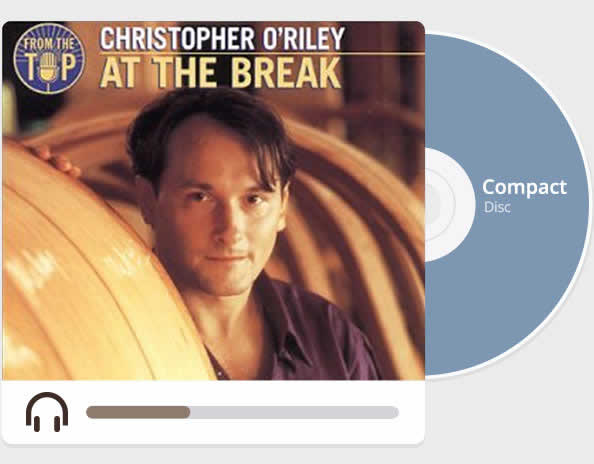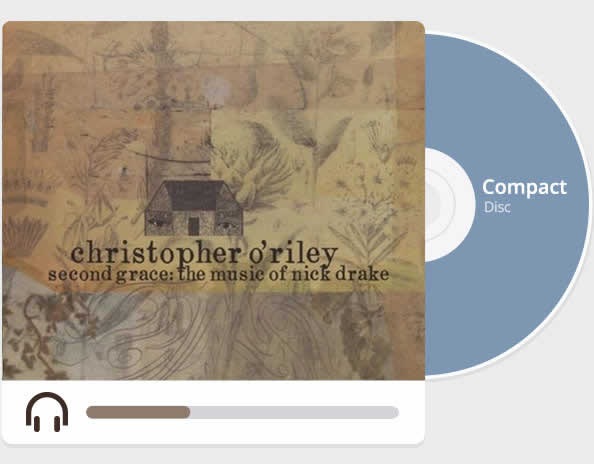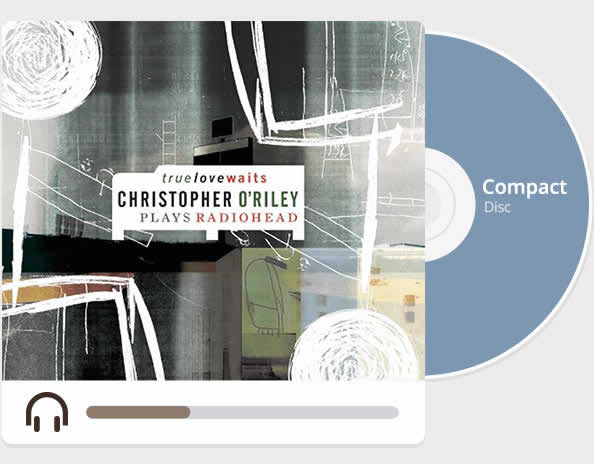Out of My Hands
$15.00
“Out of My Hands has every sign of being a landmark disc that will be repeatedly referenced within the context of its time, and in the future, so don’t miss out.”
~ AllMusicGuide’s Uncle Dave Lewis review
Description
“As a huge fan of O’Riley’s work with the Radiohead and Nick Drake catalogs, I am very impressed and honored that he chose to interpret this song.”
~Michael Stipe of R.E.M. on O’Riley’s World Leader Pretend.
- Audio CD (August 18, 2009)
- Number of Discs: 1
- Label: Mesa Bluemoon
audio clips
track list
- Tori Amos – Mother 7:08
- Radiohead – All I Need 5:11
- Elliott Smith – New Disaster 6:26
- Nirvana – Heart Shaped Box 6:20
- Portishead – The Rip 6:47
- Pink Floyd – Us And Them 8:59
- Tears for Fears – Woman In Chains 6:14
- Cocteau Twins – Blue Bell Knoll 4:43
- R.E.M. – World Leader Pretend 4:44
- Radiohead – Video Tape 5:45
- The Smiths – Asleep 4:50
- Reid Anderson (of The Bad Plus) – Lost Of Love
Michele Yamamoto in UnderTheRadar magazine’s Fall issue
Christopher O’Riley has been a public figure in the fusion (or confusion) of classical and popular styles of music. An able pianist, O’Riley has peformed eclectic programs, placing the impressionism of Debussy against the experimental folk of Nick Drake. He’s already released two albums adapting the music of Radiohead and one each that tackled Elliot Smith and Drake. Now, with this latest release, Out of My Hands, O’Riley presents his own arrangements of popular pieces from Cocteau Twins, Nirvana, Radiohead, The Smiths, Portishead, R.E.M. and more.
The first single off the album, a rendition of Nirvana’s “Heart-Shaped Box,” opens up faithfully enough. A quiet reproduction of the melody is about as overtly faithful as it gets, but O’Riley manages to retain the anxiety of the original. Both in dynamic song structure and in the harmonies that result from intricate layering of music ideas, “Heart-Shaped Box” is every bit as aggressive as the original. And with the final unresolved chord, O’Riley even allows the harmony to ring out for about 45 seconds, enabling the sound mass to eventually take on the timbre of feedback.
With Elliott Smith’s “New Disaster,” the piano emphasized the sparkle of Smith’s upper guitar lines and spins it all like a Debussy-an quasi-tonality. Radiohead’s “All I Need” displaces lines from the bass-heavy song across the keyboard, creating an entirely different space with virtually the same notes. Of course, he never forsakes the harmonic or melodic structures.
In his adaptations, culled from the originals and onto a single instrument, O’Riley utilizes scores of techniques to produce original interpretations without sacrificing the core of the original songs.
Ben Peterson of PopMatters
Out of My Hands is Christopher O’Riley’s fifth foray into reimagining hip popular music for classical piano; previously he has devoted entire tribute albums to Radiohead, Elliott Smith, and Nick Drake, turning himself into something of a well-known novelty act in the process. For those who have followed his work, it’s clear that his highly professional approach to these artists has become consistent and at times quite evocative. Whether anyone would have expected or even wanted him to continue for this long, however, is questionable: regardless of quality, one who carves out such an outsider niche as O’Riley is bound to wear out his welcome with enough persistence, especially when focusing so much on the work of a small number of songwriters. Perhaps that’s why he chose to stir things up by making this latest release a veritable mixtape of cover songs, offering several new selections from the above mentioned artists along with newly adopted repertoire from other mainstay acts like Nirvana, the Smiths, and Pink Floyd.
With his first album of covers in 2003, the Radiohead-devoted True Love Waits, there were those who praised O’Riley not only for his skilled and novel approach to a beloved body of work, but also for the prospect that he might introduce classical music listeners to Radiohead, thereby bringing the band even more widespread scholarly acclaim. The fact that an already established pianist—heretofore noted for his enlightened performances of Rachmaninoff concertos—would release such a well-considered tribute to a rock band, and claim in an interview that their music was all he ever listened to in his free time, seemed like it would lend the band an exciting air of legitimacy in a completely new sphere. But while True Love Waits may very well have had that effect, at least to a limited degree, there’s no real doubt that something of an inverse has come to be true with his subsequent albums: namely, that only listeners who are already intimately familiar with the work O’Riley is covering will have any real interest in hearing his reworked versions, let alone the potential to be compelled by the results.
What Christopher O’Riley does is inherently fraught with difficulty—taking cherished, well-known music whose identity is by and large reliant upon particular vocal performances and singular instrumental textures, and attempting to distill it and rebuild it on one lone instrument while keeping some element of the original character in tact. In making the music devoid of both the sound and meaning of its lyrics and the particular interplay and panache of the original musicians—who could be more enigmatic than vocalists like Kurt Cobain, Thom Yorke, and Morrissey?—it becomes essentially about utilizing familiar melodies and countermelodies in their pure form, and exploring their rhythms and repetitions in the new, limited context of classical piano.
From a music theory standpoint, it’s a safe bet that O’Riley sees more in the music he interprets than the average listener, which gives him a unique vantage point. Along with providing a rather open description of his inspiration and the near-cathartic value he finds in doing this, the liner notes of Out of My Hands give a brief but effective academic reading of each song, with O’Riley ultimately painting himself first and foremost as a fan whose primary method of connecting with the music he loves is to rework it on his own terms.
In light of the fact that he seems inspired by fairly unique aspects of the music he draws from, listening to O’Riley’s work can bring to the forefront nuances that might have gone unnoticed in the original, but it also has the potential to undermine certain expectations. His version of Pink Floyd’s “Us & Them”, for example, manages in some places to heighten the dreaminess of the original, by taking rhythmic liberties with the playfully twinkling ivories and accompanying chords, but in other places the melody gets entirely lost under layers of adornment. He has a penchant for embellishing melodic lines with plenty of extra dissonances and complex key patterns repeated ad nauseam, which, in their circumvention of the beautiful simplicity of the original melody, can sound like they’re totally missing the point. Of course, searching for and following a familiar melody amidst the fray can be half the fun—and often actually allows O’Riley’s renditions to take shape—but for those unfamiliar with the original, it quickly becomes an indecipherable mash of well-executed notes that lack coherence.
It stands to reason that the most successfully converted songs are the ones that are the most nakedly melodic and rhythmically striking to begin with—in this respect, O’Riley’s choice of material is almost as important as how he executes it, especially given how established his process now sounds. The first few tracks on Out of My Hands are fairly successful, in that they have a good balance with one another and manage to remain captivating throughout. Tori Amos’ “Mother” is kept subtle and pretty, while Elliott Smith’s “New Disaster” is gorgeously cinematic, if a bit overlong. Probably the main attraction here is Nirvana’s “Heart Shaped Box”, in which O’Riley imbues the melody with just enough of a brooding undercurrent, capturing the soft/loud bite of the original by amping up the bombast at just the right places.
This is the first time he has taken a disparate set of songs from a wide variety of sources and made them all get along together, and there’s certainly a danger to reducing them all to a homogeneous state. When he devoted an entire album to, say, just Nick Drake, it was easier to get lost in the tracklist, because you only had to relinquish your sense of one artist’s distinct aesthetic at a time to get lost in his performances. It’s much harder to allow the different acts represented here to lose their respective individuality all together in a big mixing pot; by the end of the album, the biggest craving is for the kind of distinction that only legitimately different entities can bring to the table. And where Christopher O’Riley’s previous releases had significant novelty value to the fans of whichever artist he was focusing on, it’s hard to say who Out of My Hands is going to appeal to, or why anyone would be moved to listen to more than one of these renditions at a time.
AllMusicGuide’s Uncle Dave Lewis review
Nearly as far back as one can go with the canon of Western classical music — the mid-fourteenth century or so — composers have been drawing upon the resources of popular music for inspiration. We don’t recognize the tunes now in many cases, as we cannot listen with medieval or renaissance ears, but the pop hits of bygone centuries run through the masses and motets of that time, much as gypsy melodies and folk songs populate the symphonies and concertos of somewhat later times. The historic situation cuts both ways; in the nineteenth century, opera arias took pride of place alongside the parlor favorites, quadrilles, and sentimental heart songs that constituted musical life outside the opera house or concert pavilion. With the advent rock & roll, its drum kit, bass and electric guitars, and their requisite pedals — essentially placing the capability of a mini-orchestra under the hands of three or four players — the crosstalk with classical music heretofore hasn’t been so natural or direct, though not for a lack of trying; rock had barely been in the public consciousness three years before the first cross-pollinations with other music began to appear. Rock music, however, is so closely wedded to its performers and inherent sonic universe that to some ears taking it into another dimension can only make it sound trite and second-tier.
Not so Christopher O’Riley’s White Tie/Mesa Bluemoon release, Out of My Hands, which includes 12 first-rate classical piano transcriptions of songs taken from the repertoire of pop and rock artists such as Radiohead, Portishead, Pink Floyd, Elliot Smith, The Smiths, Nirvana, and others. It is a challenging, moving, and a wholly idiomatic experience from the standpoint of the piano; there are even some technical innovations, such as the antiphonal exchanges between extreme registers of the keyboard in O’Riley’s transcription of Portishead‘s “The Rip.” There are many moments here that fire up the imagination, energize, and inspire, like the long, Bill Evans-like prelude that opens O’Riley’s set of variations on Pink Floyd‘s “Us and Them” or the thundering power and discord of O’Riley’s recasting of Nirvana‘s “Heart-Shaped Box.” This isn’t Arthur Fiedler and the Boston Pops doing tunes from Saturday Night Fever; O’Riley really goes for it, and his versions of these numbers “rock” even though he doesn’t have a drummer or bass player to support him in this courageous and dazzling high-wire act without the benefit of a net. Moreover, Out of My Hands provides the same emotional depth and intellectual stimulation one might come to expect from a first-class, standard classical piano recital as O’Riley’s attitude about this “non-serious” music is as reverent as it would be for something of Liszt or a Brahms Intermezzo. Out of My Hands has every sign of being a landmark disc that will be repeatedly referenced within the context of its time, and in the future, so don’t miss out. It is urgently recommended that anyone with ears get within earshot of Out of My Hands, as it resets the bar for the conversation between classical and popular music. The recording, made with a special microphone design that situates multiple mikes within the body of the instrument, is likewise spectacular, not to mention good and loud, not a property you often get with classical anything.



